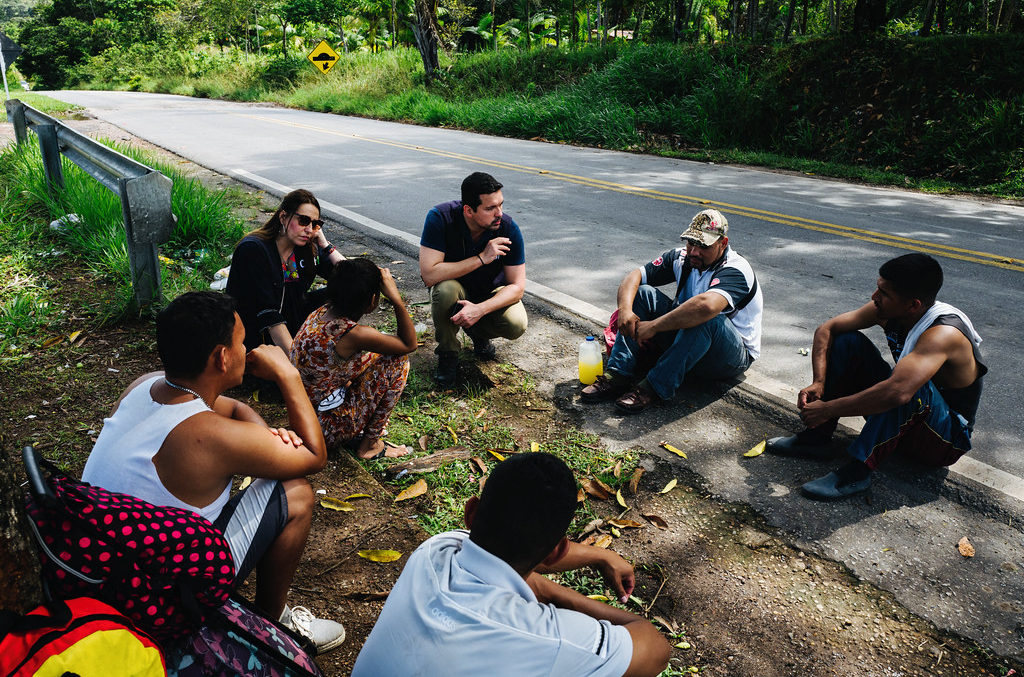The United States government has a long record of involvement in coups, destabilization of democratically elected governments, and active sabotage of emancipatory public policies in Latin America. Often, cooperation and development agreements signed by international government agencies are used as an instrument to undermine democratic processes and direct the actions of the governments of these countries in ways that benefit the interests of the U.S. and big international capital.
The prime example, among many, is the United States Agency for International Development (USAID), which played an acknowledged role in structuring the repressive apparatus that sustained dictatorships throughout the continent. In Brazil, the controversial agreements between the Ministry of Education and Culture and USAID, signed in the 1960s during the military dictatorship, aimed for cooperation between the Agency and the Brazilian government to reform higher education in the country. Denounced at the time as symbols of the increased U.S. presence in Brazil, the agreements represented, on the one hand, a step backward in education, eliminating subjects such as Philosophy from the curriculum and reducing the teaching load of subjects such as History.
On the other hand, in the corridors of the Brazilian state, within the framework of an agreement with the Ministry of Education and Culture (MEC), a consultancy was implemented to train and technically modernize the police forces, with U.S. police advisors training the Brazilian repressive forces, a seminal program of Operation Condor.
U.S. police advisors had been present in Brazil since the government of João Goulart. At that time, Frank Jessup, head of the USAID program’s advisory team at the time of the 1964 military coup, celebrated in a telegram to Washington that police authorities in the eight states where U.S. forces were present had joined the coup. Jessup also celebrated that the Goulart government or the Brazilian left never questioned the presence of the country’s police advisors.
Venezuelan migration
Starting in 2019, USAID’s presence was again a constant in South America, especially focused on the Venezuelan issue. First, the agency participated in the operation to send “humanitarian aid” to Venezuela supporting Juan Guaidó, who, at the time, was recognized by the U.S. as the president. A subsequent report indicated that the operation “did not follow humanitarian principles,” and that officials were directed to align the operation’s decisions “to bolster the credibility of the interim government.”
Guaidó’s parallel government received $158 million from USAID as funding for the “Venezuelan government” under an agreement signed in October 2019 to establish “development projects.” Since 2017, the U.S. government has allocated US$656 million to assist displaced Venezuelans or for development projects involving Venezuelans — of which US$437 million has been committed by USAID.
In Brazil, USAID’s recent presence has been mainly linked to support for projects with Venezuelan migrants developed by civil society organizations, under the umbrella of the humanitarian rationale.
The Oportunidades (Opportunities) project, with a budget of US$4 million, has the objective of facilitating Venezuelan migrants’ access to formal employment and income-generating opportunities. It was launched in partnership with the International Organization for Migration (IOM) in January 2020, shortly after Jair Bolsonaro’s government adopted the slogan “Socialism excludes, Brazil welcomes” for Operation Acolhida (Welcome Operation), created to manage the flow of Venezuelans on Brazil’s northern border and implemented by the Armed Forces.
This phenomenon also coincides with the growing interest of the Brazilian military and leaders of the Brazilian far right in the migration issue. In Brazil, the Mixed Parliamentary Front for Support and Reception of Transnational Migrants and Refugees hosts leaders of the far right, such as General Eduardo Pazuello and Congresswoman Carla Zambelli.
Even after the end of the Bolsonaro government, the presence of a wide range of entities linked to the U.S. government in the financing, implementation, and execution of actions related to Brazilian migration policy continues to draw attention. During the Lula administration, processes of popular participation in the elaboration of migration policies have been financed with the support not only of USAID, as in the case of the Free Conferences on Youth and Migration, but also of the Bureau of Population, Refugees, and Migration, linked to the U.S. State Department. This was the case of the State Conference on Migration, Refugees, and Statelessness in the State of Bahia.
The Pan-American Development Foundation (PADF), linked to the Organization of American States (OAS), was also among the supporters of the Free Conference on Socioeconomic Insertion and Promotion of Decent Work for Migrants, Refugees and Stateless Persons. Recently, the OAS was implicated in the political destabilization of Bolivia by releasing a fraudulent report questioning the electoral process in that country, which led to the government of Jeanine Áñez, convicted by the Bolivian justice system of having organized a coup d’état in 2019. Finally, the U.S. Embassy in Brazil has also been among the funders of services aimed at migrants.
Worrying presence
The presence of a foreign government in the organization of processes of consultation, elaboration, and implementation of public policies is worrisome in several ways, especially if relations have historically been structured in an abusive and asymmetrical manner.
First, it indicates the presence of a growing policy of border externalization, the objective of which is to design and implement U.S. migration policy in South American countries, despite local needs. The recent Venezuelan mass migration is also the effect of previous U.S. interference in sovereign countries, such as Haiti, without the Haitians deserving the same attention and budget.
It also reinforces the instrumentalization of migration for geopolitical — and ideological — purposes, which implies an extemporaneous anti-communist approach to the region and the migration issue. In Brazil, this process takes place at the expense of a possible cooptation of the production of migration policy at a particularly fruitful moment, when two national policies for migrants are being elaborated, one comprehensive and the other sanitary.
Finally, the U.S. government is involved in the implementation of public policies in Brazil by financing and structuring assistance services to this population, restricting access to assistance to certain nationalities, segmenting access to rights, and collecting and managing data on immigrants. This is a movement that must be followed closely and critically.
*Translated by Janaína Ruviaro da Silva from the original in Portuguese.














